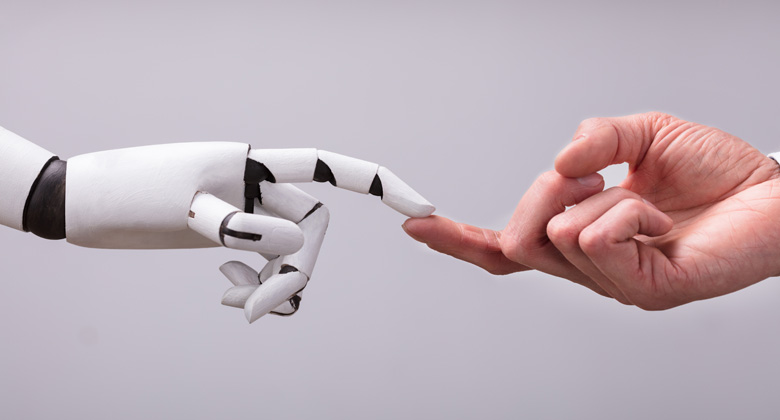Hospitality services in the digital age: Leveraging technology for better customer experience
Hospitality services in the digital age: technology for enhanced customer experiences
Hospitality businesses need to understand and adapt to the rapidly changing customer expectations.
On the one hand, the young and savvy travelers seek for the unique experiences, rather than materials. They utilise apps like Airbnb and EatWith to travel like and eat like a local.
The quest for experience-focused holidays is not exclusive for the generation of vintage fashion and cool tattoos. The luxury travelers, who are supposedly at the other end of the hospitality market segment, are also looking out for personalised experiential travel.
‘‘The aspiration is about authenticity and originality.’’ according to Ritz-Carlton COO Herve Humler in an interview with Skift. On top of the complex.
Technology shaping the future of hospitality
The expectations have been intensified by the prevalence and availability of mobile phones, social media and cloud. Today, the millennials across the globe are more mobile than their parents. But they are also more likely to use mobile and tablet apps to book instantly their flights, accommodations and cars.
so how can hospitality industries leverage technology to heighten authentic customer experience?
User-generated content (UGC) to build the expectation
Needless to say that advertising has expanded to the digital sphere, the nature of content has also become more diversified. The 2014 Google report highlighted that almost 83% of people living in the US use social media, video and photo sites to get travel inspiration, suggesting the cruciality of high quality imagery, high definition video as well as authentic reviews.
Hospitality businesses creatively integrating these user-generated content can successfully cement their positions as an authority within the industry, whose voice considered worth listening by customers.
In fact, it has been demonstrated that user generated content can actually extend a user’s time on site up to nearly 7 minutes for major travel brands.
Successful user-generated content include:
- reviews and testimonials
- guest bloggers and writers
- interactive photo/video contests on social media
- pictures of guests taking pictures of themselves and tagging the brand (like in the example below, but without the contest)
The recent idea includes #flyBA2015 whereby the British Airways asked the social media users to share their top 2015 destinations.
Is it really worth the efforts?
Despite the benefits and studies conducted in the past, the industry is still under-utilising user-generated digital content. But savvy hospitality brands curate interesting stories from users to generate authentic voice consistently across the digital platforms. Social media help build the connections and a sense of community amongst potential customers. The fellow users are the most persuasive, influential and the most trusted voices than paid online ads. Besides, customer reviews and testimonials help their brands rank higher in search results.
And of course, user generated content and online reviews have to be followed by perfectly timed responses from dedicated customer support team who monitor the online community, relevant hashtags and mentions.
Smooth booking and payment experience
Perhaps one of the major business challenges facing today’s hospitality businesses has to do with the growth of OTAs (online travel agencies). Giant OTAs like booking.com and Expedia are excelling at brand building and recognition, offering efficient and simple customer journey online.
Customers – young or old, wealthy or not – will not give a second change to websites that evoke frustrating feelings. No one wants to spend more time searching than actually watching a film on NetFlix. Hotel and restaurant businesses need to embrace advanced technologies and mobile apps to improve the process of booking and payment and encourage returning guests. Some hotels are incorporating a system whereby customers can check-in while being escorted to the rooms without having to bare with tedious waiting lines at reception. It is more likely that your guests will book a room / table directly through your website.
Turn user data into your competitive advantage
The key to personalised hospitality service lies in user data. Information collected from social media interaction, feedback and online booking can be used to develop solid customer relationships. Right, it will not take a genius to guess that a guest with small children prefer to stick around the hotel’s swimming pool. But what kind of poolside services are they expecting?
Savvy hospitality businesses dig deeper and go beyond guesswork by using customer data and predictive analytics to craft bespoke experiences. Big data allow you to focus on details that will differentiate your services from the rest by identifying the seasonal trends and changing preference. Further insights into customer behaviours allow you develop packages that are more attractive to customers at competitive prices.
So, if implemented effectively, your user-generated content can be a trigger or inspiration. Then your potential customers will go online and evaluate your service against competitors. And it is more likely that they will choose to book their next holiday on a website that offers a consistent user journey. Based on the data collected from this transaction, you will be able to create a more personalised, useful and attractive offer to your returning customers.
What do you think?
Appnova is a digital agency specialising in web design, UX, eCommerce, branding, digital marketing and social media.
Keep following us on Twitter @appnova and “like” us on Facebook for useful news and tasteful digressions about geeky stuff.
Subscribe To Us
Contributors
Categories
Subscribe To Us
Contributors
Categories

This website uses cookies so that we can provide you with the best user experience possible. Cookie information is stored in your browser and performs functions such as recognising you when you return to our website and helping our team to understand which sections of the website you find most interesting and useful. Third party cookies such as Google Analytics is also used on this site to provide analytics in order to better understand the user engagement on our site.
You can adjust all of your cookie settings by navigating the tabs on the left hand side.
Strictly Necessary Cookie should be enabled at all times so that we can save your preferences for cookie settings.
If you disable this cookie, we will not be able to save your preferences. This means that every time you visit this website you will need to enable or disable cookies again.







0.Comments